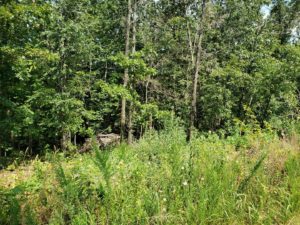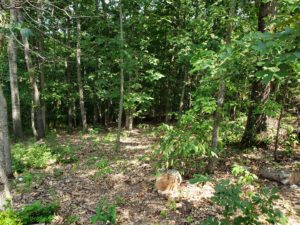
People who know and love poetry might recognize the title of this post as coming from Robert Frost’s poem “Stopping By Woods On A Snowy Evening”. Over the years I have come to like this poem much, but once upon a time I hated it.
I hated it because of how it was used by a string of English teachers, year after year, and how they insisted that this was a suicide poem. That may even include two favorite English teachers. If so, they did a good job except for this. I never could see suicide in the poem. The teachers said you had to look below the words on the surface and find the hidden meaning the poet was really saying. I couldn’t see it. To my schoolboy mind, the teachers ridiculed you if you couldn’t see it. Years later I wrote a poem about those experiences.
A critic I will never be.
What others “know” I seldom see.
Thought most did, I just never could
see death in that dark snowy wood.
Let others find some hidden meaning.
Such deep insights I won’t be gleaning.
But please, don’t take this as a stricture.
I just enjoy the pretty picture.
Not much of a poem. It has no hidden meaning. No metaphor or simile. The only poetical devices are rhyme, meter, and line breaks. Maybe a touch of word play.
A few days ago, I was outside our house in the street, just up the hill in front of the vacant lot next to me. We live in a lightly developed area; four houses on our street and twenty undeveloped lots, all forested. I looked down into the woods of that lot, and it was dark. It was a bright sunshiny day, but the leaf canopy of the oaks let no light in. The sun, beginning its western descent, was shining on the forest at the edge of the road, but the woods were dark.
I’ve never noticed that before, the incredible darkness of the woods on a sunny day. Maybe the leafy canopy is denser than normal this year. Yesterday I purposely went outside to see the woods (from the street) at noon. The high sun penetrated the canopy in a few places. Most of the wood seemed dark, but the few sunlit places would give someone in the woods a target to go to.
At different times during the day I went into the woods. Just one row of trees from the open area cleared by the power company, but the view was completely different. The darkness of the woods seemed deeper. My eyes adjusted to the reduced light (the sun now being behind my back and me in shade), so I could better see individual trees until tree after tree stacked together and you couldn’t see any further into the woods.

Why did people, English teachers especially, think “Snowy Wood” was a suicide poem? Primarily because of the last stanza, where Frost repeats “and miles to go before I sleep.” The first time this phrase is used, they say, the poet narrator means that night that he is looking at the woods. The second time he uses it, they say, he means sleep as death. His death is a long way off, and those promises he has to keep are burdensome. Thus, he wishes he could just go off into that wonderful, dark and deep snowy wood, die, and be released from his burden.
As I look at the dark and deep woods that surround our house, I have no such foreboding, no such longing. I have much to do in life. While I may be retired, every hour of the day is filled with meaningful, stimulating, sometimes physically exhausting things. Writing, Reading, Praying. Stock trading. Even decluttering and dis-accumulation. I’m so far from being ready to die that I don’t think of it, most of the time.
But I do think of it as I look at the world around me, and people close to me. A number of people in our adult Sunday school class are facing serious health issues. Death may not be on the doorstep but he’s certainly on the block, right around the corner. Wednesday we learned of the death of another high school classmate. That’s now around 80 or 90 out of a class of 725. I didn’t know this man in school, as life circumstances then prevented me from meeting many except for those in my classes, football, track, and band. And even some of them have faded from memory.
But, clearly, the older I get the more death closes in, just like the impenetrable woods.
To me, the woods represent opportunity, something to explore, something to master. not to tear it down, but to get to know it. I have the rest of a lifetime to do so, whatever God allows me to have. I hope I use the time well.
The woods are indeed lovely, dark and deep. But I do have promises to keep and, hopefully, miles to go before I sleep. It’s not about death but about life.
